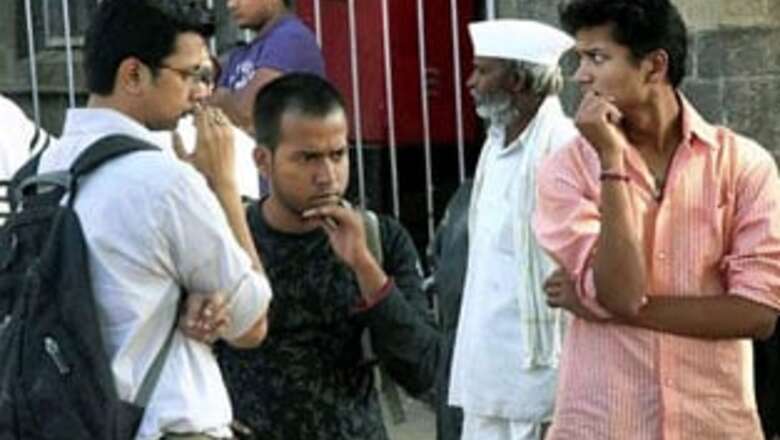
views
New Delhi: Terror group Indian Mujahideen is emerging as the key suspect in the Pune bomb blast case.
Investigating agencies are looking at Indian Mujahideen's links with Karachi-based Lashkar-e-Toiba and its front organisation Jamaat-ud Dawa.
The group's Maharashtra wing leaders are also being tracked to unravel the blast links.
The blast in Pune's German Bakery on Saturday evening that killed nine people is similar to Varanasi, Hyderabad and Delhi blasts.
The link with the Indian Mujahideen has also got stronger with the clues retrieved from the blast site at German bakery so far.
Sources have confirmed that the explosives used in the Pune blast were a mixture of ammonium nitrate and RDX.
Ammonium Nitrate was one of the key components used in the Delhi serial blasts, also believed to be the handiwork of the Indian Mujahideen.
The technique of packing explosives and keeping it in a bag and leaving it unattended is also similar to the one used for Delhi serial blasts.
All major cities including Delhi, Indore and Kanpur have been put on high alert.
Delhi, Indore and Kanpur are the cities mentioned by Jamaat-ud Dawa deputy chief as terror targets.
The Pune blast came 10 days after the Lashker's front organisation Jamaat-ud Dawa warned that the city could be targeted.
At a rally in Islamabad JuD deputy chief Abdur Rehman Makki had reportedly warned of targeting Indian cities.
"By denying Pakistan water, India has ensured that every farmer in Punjab is lining up, ready to overrun India. At one time, jihadis were interested only in Kashmir, but the water issue has ensured Delhi, Pune and Kanpur are all fair targets," Abdur Rehman Makki had warned.
Sources have told CNN-IBN that recently arrested Indian Mujahideen operative Shehzad Ahmed had shared information on terror modules based in Pune.
Indian Mujahideen has also been blamed for a string of bomb blasts in major Indian cities in 2008.
Evidence collected from the blast in Pune has the "trademark" of the Indian Mujahideen, intelligence sources say.
The group has built a strong network suspect across Maharashtra and is believed to have a module in Pune, they say.
The group is blamed for the serial blasts in Varanasi, Faizabad and Lucknow on November on November 23, 2007 that killed 13 people.
It is also blamed for the May 2008 serial bombing in Jaipur that killed 63 people.
The July 26, 2008 in Ahmedabad that killed 46 people was also the handiwork of the Indian Mujahideen.




















Comments
0 comment